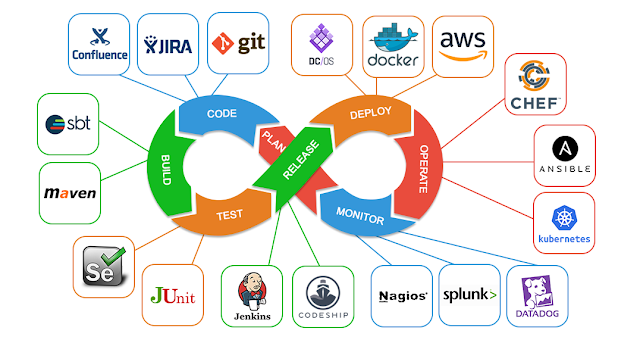DevOps Basic
Week 1: Introduction to DevOps
- Day 1: Overview of DevOps principles and practices
- Day 2: History and evolution of DevOps
- Day 3: Benefits of implementing DevOps
- Day 4: Key DevOps tools and technologies
- Day 5: Introduction to continuous integration (CI) and continuous delivery (CD)
Week 2: Version Control Systems
- Day 1: Introduction to version control systems (VCS)
- Day 2: Git basics: repositories, commits, branches, and merges
- Day 3: Git workflows: centralized, feature branch, and GitFlow
- Day 4: Git collaboration: remotes, pull requests, and code reviews
- Day 5: Git branching strategies and best practices
Week 3: Infrastructure as Code (IaC)
- Day 1: Introduction to Infrastructure as Code (IaC)
- Day 2: Infrastructure provisioning tools (e.g., Terraform, AWS CloudFormation)
- Day 3: Writing infrastructure code: YAML, JSON, HCL
- Day 4: Managing infrastructure configurations
- Day 5: Infrastructure testing and validation
Week 4: Configuration Management
- Day 1: Introduction to configuration management
- Day 2: Configuration management tools (e.g., Ansible, Puppet, Chef)
- Day 3: Managing configurations with Ansible
- Day 4: Infrastructure automation with Ansible playbooks
- Day 5: Ansible roles and best practices
Week 5: Continuous Integration (CI)
- Day 1: Introduction to continuous integration (CI)
- Day 2: Setting up a CI/CD pipeline with Jenkins
- Day 3: Configuring Jenkins jobs for automated builds
- Day 4: Running unit tests and static code analysis in CI
- Day 5: Jenkins pipeline as code (Jenkinsfile)
Week 6: Containerization with Docker
- Day 1: Introduction to containerization
- Day 2: Docker basics: containers, images, and Dockerfile
- Day 3: Managing Docker containers and images
- Day 4: Docker networking and storage
- Day 5: Docker Compose and multi-container applications
Week 7: Container Orchestration with Kubernetes
- Day 1: Introduction to Kubernetes
- Day 2: Kubernetes architecture and components
- Day 3: Deploying applications to Kubernetes clusters
- Day 4: Managing Kubernetes resources
- Day 5: Scaling and monitoring applications in Kubernetes
Week 8: Continuous Delivery (CD)
- Day 1: Introduction to continuous delivery (CD)
- Day 2: Deployment strategies: blue-green, canary, rolling updates
- Day 3: Implementing CD pipelines with Jenkins and Kubernetes
- Day 4: Automated testing in CD pipelines
- Day 5: Configuration management and versioning in CD
Week 9: Monitoring and Logging
- Day 1: Introduction to monitoring and logging
- Day 2: Monitoring tools and metrics (e.g., Prometheus, Grafana)
- Day 3: Setting up monitoring and alerting in Kubernetes
- Day 4: Centralized logging with ELK stack (Elasticsearch, Logstash, Kibana)
- Day 5: Analyzing logs and metrics for troubleshooting
Week 10: Security and Compliance
- Day 1: Introduction to DevSecOps
- Day 2: Security best practices in DevOps
- Day 3: Securing Docker containers and Kubernetes clusters
- Day 4: Implementing security policies and access controls
- Day 5: Compliance requirements and auditing in DevOps
Week 11: Cloud Platforms and Services
- Day 1: Overview of cloud computing platforms (e.g., AWS, Azure, GCP)
- Day 2: Cloud-native development and services
- Day 3: Deploying applications to cloud platforms
- Day 4: Managing cloud resources and costs
- Day 5: Integrating DevOps practices with cloud services
Week 12: Advanced DevOps Concepts and Practices
- Day 1-4: Deep dive into advanced DevOps topics (e.g., serverless architecture, GitOps, Site Reliability Engineering)
- Day 5: Final project or capstone: applying DevOps principles and practices to a real-world scenario



